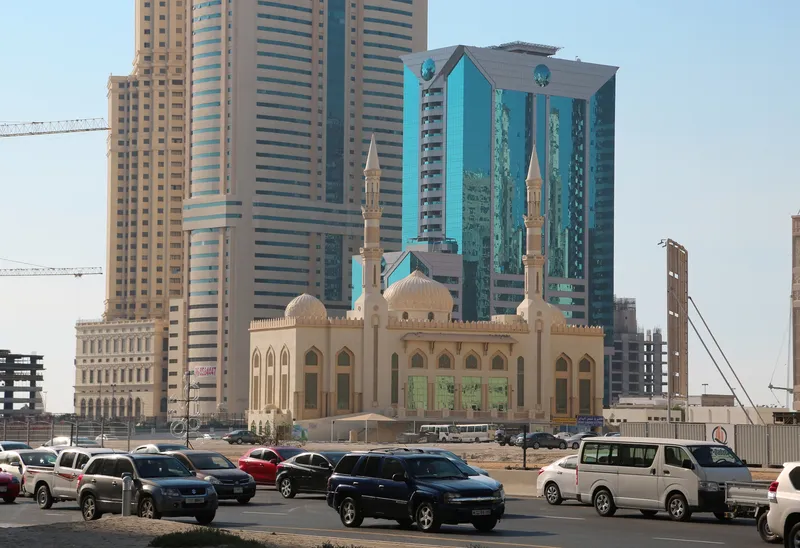
Improvements in both traffic flow and the local environment in Sharjah are predicted as a new traffic management system comes into effect.
Like most cities in the United Arab Emirates (UAE) Sharjah, the capital of the eponymous emirate, has to cope with heavy vehicular traffic.
Now, together with Kapsch TrafficCom, the city is developing its intelligent traffic management capabilities.
In a year-long project that started in May, Kapsch TrafficCom is supplying and installing 48 controllers, cameras and its EcoTrafiXTM software to handle traffic across 48 key junctions in the 1.5 million-population city, as well as designing a traffic control centre for the city authorities.
EcoTrafiXTM Expert software installed at the central control centre receives traffic data collected by the video cameras and traffic controllers, and calculates the optimal cycle and split for each intersection based on factors including traffic volume and stop duration.
This information is then sent back to the traffic controller, which adapts traffic light cycles and other variables to optimise traffic flow and ultimately reduce travel time, average required stops and emissions.
The system will have the added benefits of improving safety and cutting emissions by having traffic flow more smoothly and efficiently.
The system will strengthen Sharjah’s position as a ‘healthy city’, as well as cutting fuel costs for commuters.
“We at Kapsch TrafficCom are delighted to support Sharjah City in a project of this magnitude and are thankful for the excellent cooperation with the team in the traffic engineering department of SRTA,” said Fakhar Munir, UAE country manager at Kapsch TrafficCom.
“It also helps in reducing the carbon emissions of the city, which supports His Highness Sultan Bin Mohammed Al Qasimi, the ruler of the Emirate of Sharjah’s commitment towards cutting down carbon emissions.”
After the initial 12 months, Kapsch TrafficCom will maintain the system for three further years.










